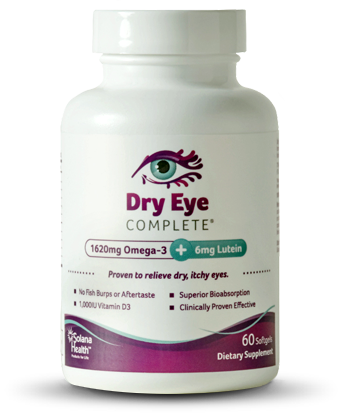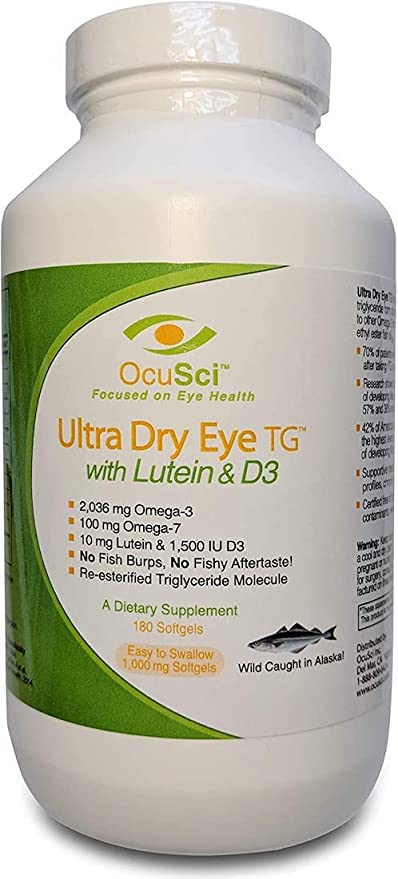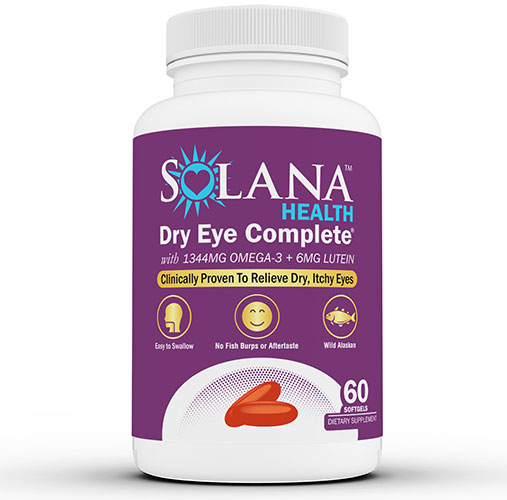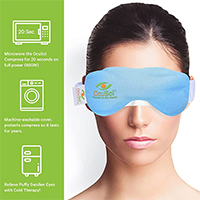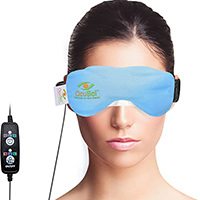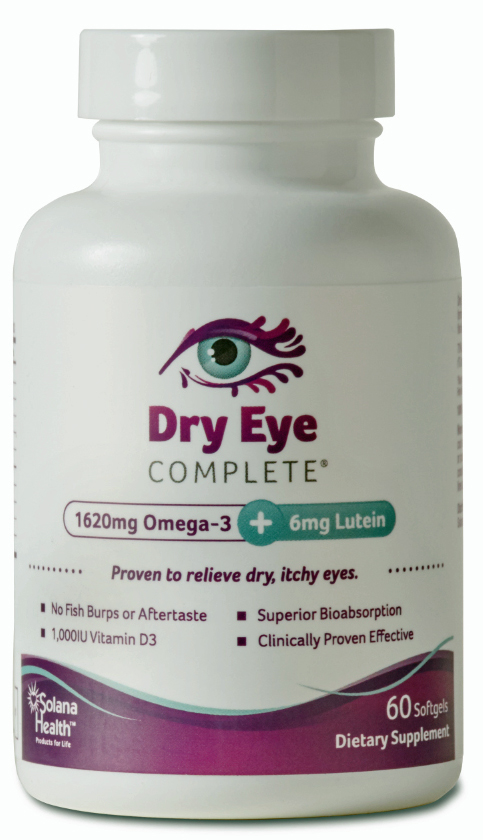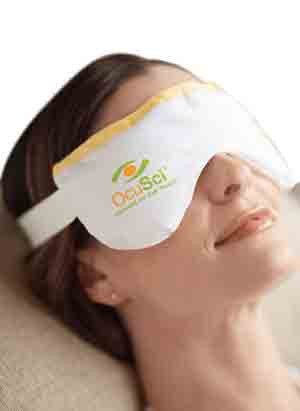Nobody wants to have dry eyes, a syndrome that is both painful and uncomfortable. It can be caused by a range of different factors, including your own behavior, your environment and your medical history. In most cases, therefore, some simple lifestyle changes and home remedies can help alleviate the symptoms. That being said, you should never gamble with your eyes, so do speak to a medical professional to find out the cause of your dry eye.
Why Over the Counter Medication Is Bad for You
Some people tend to believe in anything that is being sold. As such, when they have dry eye, they will reach for the nearest eye drops or gels in order to alleviate the symptoms that they are experiencing. However, Mother Nature has provided us with everything we need to heal ourselves, and natural remedies are often much more effective. Furthermore, over the counter remedies usually only help to mask the symptoms, not actually cure the problem itself. Let’s take a look at some of the best home remedies out there.
#1 Castor Oil
Castor oil is very easy to apply to the eyes. While not supported by scientific evidence yet (trials are currently taking place), many people have reported that they feel their eyes are much moister even after a single evening application. As research is currently ongoing, the official statement is still that there is no evidence to suggest that castor oil works as a treatment for the condition. However, in light of the many positive reports and the fact that people will therefore inevitably try it, the recommendation is to only use castor oil that is free from hexane, 100% organic and cold pressed.
#2 Herbs and Spices
The following herbs and spices have a number of proven health benefits when eaten. They are not suitable for direct application for the eye, however. Rather, they should be incorporated in your diet, where their vitamins, minerals, antioxidants and other elements can get to work in making your entire body, including the eyes, healthier.
| Herb/Spice | Details |
| Turmeric | Turmeric, or curcumin, is a yellow spice that is used for a variety of different things – skin and clothes dyes being just two of these. It is known that the spice helps to fight a number of different ailments and many people swear by its effectiveness for dry eye. |
| Paprika | Paprika is known to be full of vitamin A, which is known to be beneficial for the eyes. Paprika goes with pretty much everything and most people do have a jar in their spice cabinet, but rarely use it if at all. It is time to take it out and sprinkle it everywhere! It goes with all types of meats, eggs, salads and more. |
| Bilberry | Bilberry is a type of shrub in the same family as the blueberry. Scientists have found that it is a very beneficial plant for retinal disease, including age-related macular degeneration. They have also found it to benefit itchy, dry eyes, to improve blood circulation and tear gland function and to supply the entire body with more oxygen. The berries also contain citrin and vitamin P, which are known to fight inflammation and decrease swelling, both of which often cause dry eye. Bilberry can be taken as a supplement, or you can try tea. However, you should not consume more than 200mg each day. |
| Chamomile | Chamomile is a plant that is known to promote rest and relaxation. Most of us then think about the mind, but it also helps to rest and relax the body, including the eyes. Plus, it does also help you to go to sleep and sleep is the best medicine for everything. |
#3 Spearmint Eyewash
Mint, which is technically an invasive weed, is a very useful plant. If your eyes are stinging and itchy because of dry eye, you can make a spearmint eye wash at home. Boil about 12 leaves of spearmint in some water, then leave to cool for at least 20 minutes. Get a clean face cloth and apply it to your eyes. Spearmint contains menthol and this is known to stimulate the production of tears. Your eyes will feel refreshed and energized, and you will smell lovely as well.
#4 Washing Your Eyelids
If you suffer from dry eye because of an inflammation such a blepharitis, the flow of oil to your eye is disrupted. Gently but frequently wash your eyelids as this can be very helpful. Start by applying a warm (not hot) washcloth to the eye itself. Keep it there for about five minutes, rewetting it whenever it cools down. Gently rub it, while making sure not to apply too much pressure, in order to get debris to loosen up. You can then use a very mild soap such as baby shampoo on clean finger tips and massage this on your closed eyes, staying near the base of the eyelashes. Make sure you rinse properly before you open your eyes.
#5 Omega-3 Fatty Acids
There is now quite a lot of research that points to the idea that omega-3 fatty acids are beneficial to relieve the symptoms of dry eye. Omega-3 is also known to help reduce inflammation, which often happens in people who have dry eye. In so doing, more tears can be produced and, as it is a fatty acid, the tears will be of higher quality. You can choose to supplement with omega-3, or increase your natural intake by consuming things such as:
- Palm oil
- (Ground) flaxseed oil
- Chia seeds
- Soybean oil
- Walnuts
- Fatty fish like mackerel, sardines, tuna and salmon
- Fortified eggs
#6 Drinking Water
Most people who have dry eye have a problem with one of the three layers of their tear film: the water, the oil or the mucus content. Almost always, the problem is in the water content. Hence, by making sure you drink between 8 and 10 glasses of water each day, you will also improve the quality of your tears. As an added benefit, you will be healthier overall.
#7 Blinking
Our body’s own way of producing tears is to blink. Because so many of us spend excessive amounts of time staring at screens nowadays, and so many of us wear contact lenses, we often don’t blink enough. A simple blinking exercise may be all that is needed to relieve you from the symptoms of dry eye. Try constant blinking for about a minute to experience relief.
#8 Cucumber
You will probably have seen pictures of women serenely lying somewhere with a mystical, Mona Lisa-style smile on their face and two pieces of cucumber on their eyes. While this may look very strange, it actually really works. Make sure that the cucumber is thinly sliced, however, and that it is chilled. This will help to numb the eyes, making them feel less dry. But don’t eat the cucumber afterwards.
#9 Lavender Oil
If you want to use lavender oil, make sure it is 100% organic and that it is an essential oil. Do not apply it directly to the skin or to the eyes, however, as it is very potent. Rather, mix one or two drops to an entire cup of clean water and apply this to the eye using a clean washcloth. It will help to sooth the eyes.
#10 Rose Water or Cold Milk
Strangely enough, both cold milk and rose water seem to work the same way on the eyes. Simply dip some clean cotton, close your eyes, and put the cotton on for about 10 minutes. Your eyes will relax and this will not just reduce strain but also encourage your tears to rebuild.
#11 Oils
In Ayurveda, it is believed that if you apply oil to the soles of your feet and to your head before going to bed, you will experience relief for dry eyes. Doing this works against the ‘vata dosha’, which is ‘wind dysfunction’. While there is no scientific evidence of this actually working, Ayurveda has been around for thousands of years and those who practice it often experience greater and longer health and longevity.
#12 Change Your Environment
You would be surprised at just how much your environment influences your dry eye. Make sure you have humidifiers in every room in your home, as well as your office. Do also protect your eyes from the rays of the sun and from the wind. All these things tend to dry the eyes out, even if there is nothing actually wrong with your eyes. You should also make sure you use the air conditioner as little as possible, and give your eyes a rest from the screen regularly as well.
#13 Aloe Vera
Aloe vera is pretty much good for everything in the body. It has a sticky gel inside the leaf itself, which you can place on your eyelid. While not conclusively scientifically proven, it is now quite widely accepted that this treatment does indeed work. However, it is also known that if aloe vera is applied directly to the surface of the eye, it will make the symptoms worse.
#14 Grapes
A piece of research has recently been completed by the University of Miami. They found that grapes are beneficial to the health of the eyes. This may be due to the flavonoids contained in them. A link between grapes and protection against various very dangerous retinal diseases has been established.
#15 Acupuncture
Acupuncture is another one of those treatments that are not based on scientific fact but that millions of people claim to have experienced benefits. And while scientists continue to look for the reasons why acupuncture works, even they have to admit that it seems to work. Acupuncture, according to practitioners, can address any type of issue in the body, as any illness or discomfort is caused by a blockage in energy lines. These include the eyes and if needles are applied to the right parts of the body, Qi (life energy) should once again be able to flow to the eyes and heal them.
#16 Avoiding Coffee
There is some evidence to suggest excessive consumption of coffee can make dry eye syndrome worse. Hence, people who suffer from it should cut their consumption as much as possible. One of the reasons for this is because coffee is a diuretic, which means that the body starts to dehydrate. While this will not directly heal the eyes, it will certainly stop them from getting any worse.
#17 Quitting Smoking
The link between smoking and dry eye has long been established. The eyes are very delicate and need fully oxygenated blood in order to function properly. People who smoke have lower levels of oxygenation in their blood, and this affects the eyes as well. If you do suffer from dry eye and you smoke, you must see that as yet another warning that it really is time to quit smoking.
There is no cure, as such, for dry eye. Rather, people find that they suffer from it chronically, with flare-ups occurring quite often. By following the above hints and tips, you may just find that you have fewer flare-ups, perhaps even eliminating them altogether. Or, if symptoms do return, they may be less intense. Most importantly, however, none of the above remedies will do you any harm, and most of them will actually improve your overall health.
Resources and References:
- Lifestyle and Home Remedies – Information on lifestyle changes and home remedies for treating dry eye. (Mayo Clinic)
- Dry Eyes Home Remedies – Home remedies for dry eyes. (Health Line)
- A Randomized Controlled Trial of Omega-3 Fatty Acids in Dry Eye Syndrome – Omega 3 fatty acids for dry eye syndrome. (NIH.gov)
- Ocular Inflammation and Endoplasmic Reticulum Stress Are Attenuated by Supplementation with Grape Polyphenols in Human Retinal Pigmented Epithelium Cells and in C57BL/6 Mice – Grape polyphenols for reducing eye inflammation. (NIH.gov)

